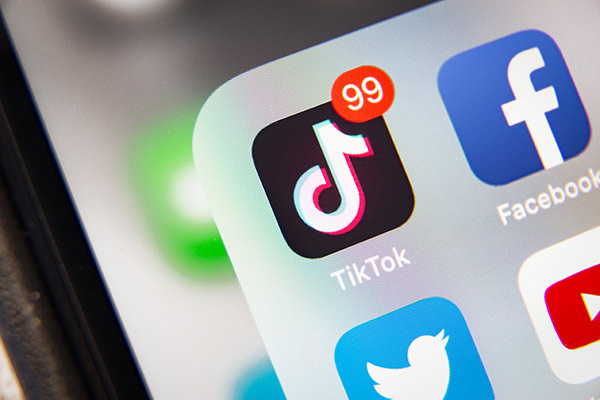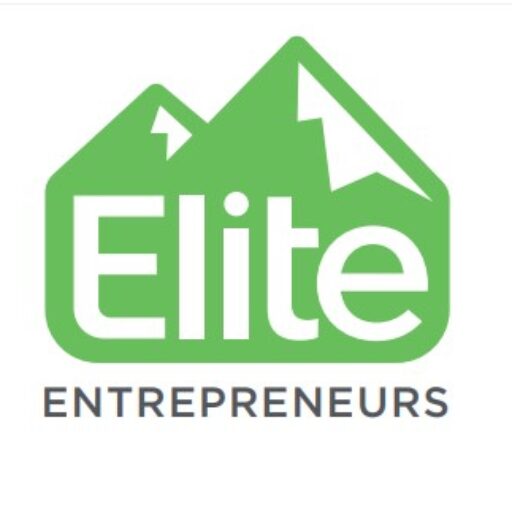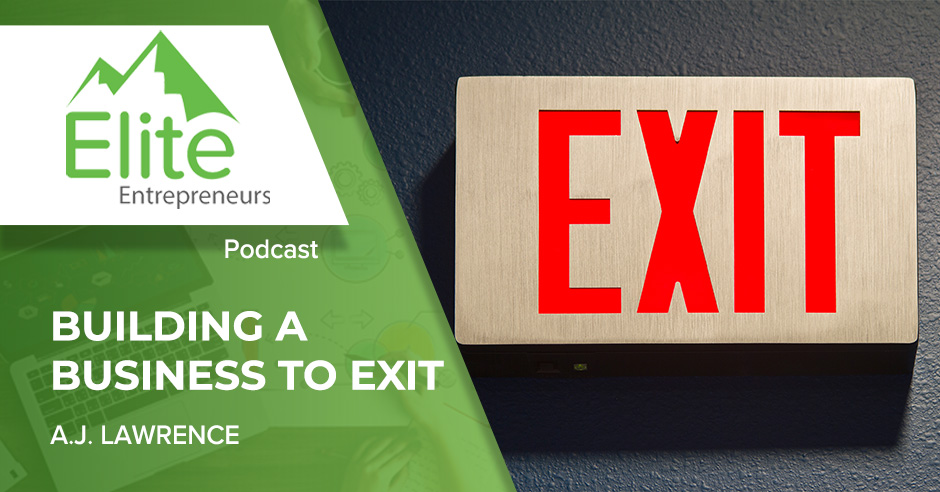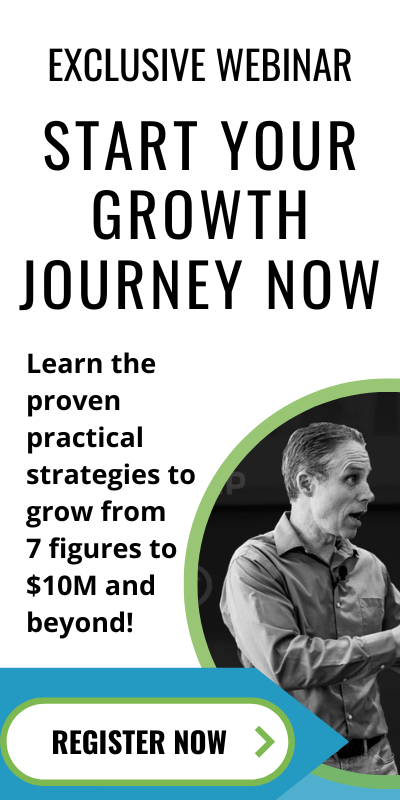Episode 120: Building A Business To Exit, With A.J. Lawrence
A.J. Lawrence has more than 25 years of professional experience across business strategy development, sales and marketing, recruitment, remote company development, and operations efficiency. He’s spent most of his career working across industries like CPG, tech/SaaS, health & wellness, financial, travel & hospitality as an investor, founder, and consultant.
His professional time is divided between his own projects and investing in other businesses. So far, he’s invested in many different startups and is involved with several investment funds including TinySeed. A.J. is also an advisor to Private Equity and VC firms, runs a strategy company, Insights Lab, and hosts the Beyond 8 Figures podcast.
What You Will Learn in this Episode:
- What did A.J. realize after exiting companies that he wish he would have done differently
- How A.J. built a million-dollar business within 6 months and exited shortly after
- Where to put more emphasis in your business to have sustainable growth
- How to be more intentional as your company is growing
- Why A.J. decided to get rid of a lot of the smart people when restructuring his company
- How to become better at handling the stress of your work
Resources:
- Website:
- LinkedIn: https://www.linkedin.com/company/insightslab-ai/
- Facebook:
- Twitter: https://twitter.com/beyond8figures/
Additional Resources:
- Email: info@GrowWithElite.com
- Website: https://growwithelite.com/
—
Listen to the podcast here
In this episode, I’m thrilled to be able to introduce our guest. His name is A.J. Lawrence. He has a podcast called Beyond 8 Figures and is a repeat offender as an entrepreneur. He’s built a few businesses to the 7-figure mark and multiple 7-figures. I saw that you were recognized a couple of times in Inc 500, the fastest-growing company in America with that great recognition, which is awesome. You have a few different companies that are servicing the entrepreneurial journey. Welcome to the show, A.J. Thank you for being here.
Thank you so much for having me, Brett. This is so cool. To break a little bit of the fourth wall, Brett was on the show for Beyond 8 Figures. If you want to hear some great wisdom from Brett, come listen to the episode of Brett. It is cool to be on here because I do enjoy your show. I jokingly said that I’ve been lucky enough to sell a few companies in the low to middle seven figures but so much of it is because I haven’t been able to build the type of companies I want to. Listening to you and looking at the work you do has helped a lot because it is something I know with the last company that I was able to sell off. It was something that I made so many mistakes in the thing. It would have been a lot easier if I had known you back then. We’ll leave it there.
That’s okay. We’re going to leverage the fact that you’ve had that experience multiple times. We’re going to talk about some of the things that you felt like you would do differently looking back. Probably, all of our readers are actively involved in their seven-figure business. They’re still in the fight. Sometimes they probably have that out-of-body moment where they go, “What if I could sell this thing and step away? What would they look like?”
They might daydream or fantasize about that. They then come back to reality and say, “No, I still need to be doing this. I’m going to make it work.” You have exited a few times. I would love for you to share some of your post exits. Maybe we call them what ifs or, “I wish I had. Here are some things I did do and figured out.” Let’s jump into some of those.
My very first one was in the mid-‘90s. This was right around the time the web was getting known. I started a digital research company right out of business school doing quantum analysis of online discussions. This was Usenet. This was a precursor to all sorts of online things. I had two clients who were using us to find them. One was a head of RJR Nabisco. I sold my soul to the devil right off the bed and took smoking money for my very first client.
Until someone asked if we could build websites, I said yes. Within six months, I had a $1 million business building websites in ‘94. Someone came and made us an offer for all stock. I had no clue what I was doing. I signed away everything and took everything. They promptly went bankrupt three and a half months after buying me. I had this great exit. The first mistake I had was not knowing what I was doing when I sold and there was that thing of actual lawyers who dealt with this doing that. That was my first mistake.
What a ride. A $1 million business in about 6 months. I don’t know how long it took you to decide to sell after that point but then three months after selling, it was gone.
It was a few months later. They were an agency that was servicing GE at the time. They were the first digital agency of record for GE if anyone wants to play a little bit of research on that. They started using us. First, we were backing some of their projects and then we turned out to be faster and better. They started giving us projects to the point where stupidly, 90% of our business was them and through them, predominantly GE a couple of smaller other ones. I put myself in a position where I didn’t have much of a choice and didn’t know much. I thought it was cool that someone was going to give me $1 million.
That was your first learning experience. We won’t call it a mistake. We’ll call it learning. None of us knows what we don’t know at those points. Let’s talk about maybe your more recent venture. We don’t even need to get into the details of growth but you grew it to mid to high seven figures in revenue. How big was your team at this point?
We were 30 at our largest. We were 36 employees and about the same size of freelancers that ran the gamut from pretty much full-time to ad hoc.
Let’s say somewhere between 50 and 70 full-time equivalents. You got a lot of people. You’re trying to figure out all this complexity. If you could go back and make a decision about where to put more emphasis to have sustainable growth, what are two areas where you would go back and shore up on how well you did some of that business-building stuff?
I’ve thought about this a lot because that became the fall down from that back down to $2 million and then grew back up to around $4 million before selling it. I would have taken a lot more pause when we were about half the size we got to. At around $3.5 million, there wasn’t the outside, “Would you like to be acquired?” There wasn’t the noise out there.
I hadn’t planned what we were going to be doing as we grew. We were here. I’m a geek. I love digital marketing and the combination of the marketing concept, theory, and tactical execution, playing around with the different tools of changed over the years. What’s possible? What’s not? How to do that? That’s something I geek out on. We did interesting things for people. We weren’t a typical full-service agency. We did projects that people couldn’t figure out they had to get around.
I hadn’t thought that there was any need to get more specific and then we started growing very quickly. We made some partnerships. We got a sales process down right, which was amazing after spending gazillion dollars on the way up, never figuring it out. We landed on a couple of partnerships and acquihire of a team that brought in some great business that we were able to embed and increase.
All of a sudden, I had no clue. Not we. It was me. People started asking if we would be interested in selling and I was interested in selling too. You get the ego because you’re at awards. You’re conferencing, spending money, and having money. I let my ego run rampant in hindsight. I don’t know if I would have recognized it but I was trying to get big, not to build the company that I had been of doing great cool work and being able to build a cool team that can handle out of the normal type of work. I got into growth.
I would have taken that step back and put more emphasis on what we were about and what we were going to do. I felt like I started chasing also because I was hiring people left, right, and center. I started chasing work to feed. keep utilization rates up higher, and all that. Also, we were getting further and further down the path of social media. It was just starting. Social media is cool and amazing stuff but as a data-driven geek company, all of a sudden, I found that 30% of my rev was social content creation without any real ties to our core capabilities.
Instead of letting your ego run rampant during a business exit, put more emphasis on what your team is about and what you are going to do. Share on XI was in the wrong direction. I would have stopped there. It’s hard to know that that’s a transition point when you’re going through it because you want to grow. The fact was I got lucky and we were building some good stuff. We’re building a good $3.5 million to $5 million company but having doubled in that year from $3.5 million to over $7 million, we weren’t a good $7 million company. We weren’t there. The global agencies were coming around and going, “Would you be interested? Would you want to be an executive VP at this and that if we acquihire you?”
I want to mine for lessons. What I heard you say at first made me think of the word intentional, unless you think about that differently than I do. It felt like you almost lost your way. It was like, “We were growing. We didn’t get intentional about who we were, who we wanted to be going forward, and what our defined or intentional destination going to be. We went after growth for growth’s sake and lost our way that way.” Did I catch that right?
Yes.
You brought up the word ego. It’s easy to get swept up in success. We doubled in a little over a year or whatever it was. “Why do I need to do all this business-building work?” Those are my terms, not yours.
I know that feeling.
“We got the golden goose. We’re going to keep cranking this thing.” I love the way that you framed it. You’re like, “We had a $7 million revenue but we were still built more like a $3 million or $3.5 million company.” Maybe that’s even generous. I don’t know how well the system was set up at that point.
We were rocky at $3.5 million but we were growing and making sense there. We were beyond rocky at $7 million.
This is a rocket ship where the pieces are rattling off and that’s not a good place to be. Do you mind me asking what that was like for you when things started to fall apart? I imagine there was some emotional and mental stress and anxiety around all of that.
Yes. It was very difficult. What I noticed in high insight was I was sleeping less. I was putting on more responsibility so I was spending less time with my family. I was working out less and drinking more. I was someone who put a bar into his office. We got great press coverage because we had a bar in our office, not a keg but a full custom-made bar. We had cocktail events all the time. Maybe that was one of the directions.

Business Exit: If you are not at your best self during a business exit, you could start sleeping less and spend less time with your family.
That might have been an indicator.
That’s a whole different thing because I do think cocktails versus drinking. It was better for me because then, I give myself one nice drink. I stopped myself but that came a little later into the process.
You’re not sleeping well and exercising. All the stress starts to build up. I hate to be poking into a difficult conversation but people reading this are dealing with that kind of stress and trying to figure out how to manage it. I’m latching onto something here that I hope will be helpful.
I didn’t deal with it until it was too late. It’s the idea that as you’re growing, there are so many knives, bowls, and plates you can keep throwing up there. If you’re not building the right systems, you have to be spinning more. When I came down and then forced myself to do this, it allowed me to keep to start growing again, back down at two. I focused on the amount of alcohol I was drinking, the minutes of exercise per week, and the hours of sleep. After a bit, I added more things and did things.
If you are not building the right systems as your business grows, you have to constantly spin more and more. Share on XI’m not going to do anything unless I’m averaging. Since I got down to under five-hour average of sleep, the first target was I get my average to 6, and then it was 6.5, 7, and 7.5. It was that movement. I was getting my average down to less than twenty drinks over the course of a month. It was having the equivalent of five hours a week of exercise and doing those things. What I found was it didn’t stop the noise and didn’t make everything work but my ability to handle things did improve.
Over time with future businesses and other things, I was able to then say, “Having that right personal foundation allowed me to look at things. Also, having the right systems and things.” I feel like I was so stressed and all over the place. It was more that I was grabbing at solutions, not living them. I did look at different programs and software. It was always like, “Please, work.” I wasn’t in a position where I could utilize that help because I had too much going on. Taking that step enforces itself. It’s like you have to force yourself to do last to then treat yourself better.
A.J., I want to thank you first for being open enough to share your experience around that. I’ve done more than 100 episodes of this show. I remember lots of things but I will always remember this moment of you talking about your sleep and exercise. You shared about drinking that wasn’t serving you. Taking care of our physical self to be able to make better decisions and/or engage at the right level with the right energies to deal with things that were happening is so foundational.
A lot of us as business owners are good at neglecting ourselves, thinking that we’re going to power through it. We are superhuman entrepreneurs. We can’t cheat the laws of physical health. We can’t do that. We will go on sprints or short seasons but too many of us try to cheat that equation and it doesn’t work. Thank you for sharing that. Let’s shift topics here for a minute. This thing grew fast to $7 million and then it pulled back to $2 million. You then build it back up to $4 million.
You had this low point where you’re like, “We were at $7 million not too long ago and now, we’re at $2 million.” It was time to rebuild. You got yourself well. You then started to do some things to build the business. Let’s grab a few key things out of that period. I’d like to hear you talk about anything related to surrounding yourself with the right people and whatever systems or processes you felt were essential to put in place. It’s almost like, “Let’s do it the right way this time.” What did that look like?
I was able to recover but the big thing that happened was I changed the business structure. I love geeking out and diving into those little bits of incremental 1%, finding the little piece. The biggest thing that happened in shrinking very rapidly and losing all that is I had to get rid of pretty much all my high-end smart people. Especially in the agency world and stuff, a lot of times, it’s a tactical execution that you need smart people for the entry point into the conversation when you’re dealing with large companies.
It’s cutting something that we thought over who I go after and who I serve but I had a lot of incredibly smart, amazing people and built-up systems that had to condense. We tried to keep where it could but the reality is I had to focus on the types of business that were not glorious but had good margins and they paid. I could execute easily with a strip-down team. What we ended up doing was restructuring it. We were a base service. We had gone from trying to be a thinking company and moving up into a strategic partner to tactical execution. We started getting very good.
This is a little bit different from our capability to deliver. In the past, we focused on amazing our clients with deeper thinking to find results then. In this, we’re fully focused on how to be executing tactical SEO and paid media at its most stripped down and getting the results. We weren’t giving them deep thoughts. We were just like, “What do you need? You get this. Done.” It’s nothing more like, “I’ll go sit on a soapbox and talk to the board for 30 minutes about the future of search as it impacts CPG.”
You went from this visionary, wowing strategic partner that could do some fulfillment to, “We’re going to get stuff done for you.” You got very targeted. It doesn’t matter that it was one way or the other but what I hear you say is, “We’ve got targeted. This is what we are going to be good at.” You chose that part of the value with the customer.
When we’re up at $7 million, we got a little cocky. We had some small things where we had some partnership issues that didn’t work out well and that created some cracks and wobbliness that led to some things. We lost some good people. I became known that I trained people well. What happened is as things got wobbly as we got bigger, it almost was like everything collapsed. As things were coming down, it was like, “What was still standing?”
The clients were getting SEO updates and link development. They’re paid search campaigns. They didn’t care about the fanciness of everything. They just wanted results. That stuck on the way down and we were able to then stabilize on that and put the effort there. That was what was interesting when I was able to sell off the parts that stuck as everything else fell, being able to be a healthier person. “Let me do it,” but it wasn’t. It was more like, “This was there.” It’s a small violin I get to complain about. “I have a business.”
You have a viable multimillion-dollar business that you grew to $4 million. Some of the people reading are approaching $1 million or they’re in that whole seven-figure range. They’d like to have what you settled for. It’s pretty good. This has been super insightful, A.J. I appreciate your level of openness and vulnerability to share some of the things that happened in your experience.
You’ve built several multi-seven-figure businesses. That’s nothing to sneeze at. It’s awesome. You continue to serve entrepreneurs in their journey. Certainly, the Beyond 8 Figures Podcast is one way you do that but you have other ways that you serve them. What is the best way for people to learn more about how you serve entrepreneurs and/or connect with you on social?
Beyond 8 Figures talks about the journey that entrepreneurs go through as we move from 6 to 7 and aspire to go past 8. Please come take a listen. I cannot not geek out about marketing, growth, and sales. Insight Labs is a company that I’ve built that’s more stripped down. We focus on what you need to grow to the next level from wherever you are.
We don’t do the work. We find you the people if you need them. We base everything on your goals, data, and resources. We don’t give you things that you don’t know how to do. We’ll show you how to do them. We’ll find your partners if need be but we’re not going to give you some crazy TikTok tutorial to get to $10 million. The whole idea is we have our inside geeks working around the clock to find you the best growth to get to that next level. That’s all we do.

Business Exit: InsightLabs doesn’t give you things that you don’t know how to do. They show you how to do them and help you find the right partners without using some crazy TikTok tutorials.
A.J., it’s been a pleasure. Thank you for joining us and sharing your story. It’s fantastic.
This was great. Thank you.
For all you reading, please share, like, review, and do those things to make sure that as many seven-figure business owners as possible get to hear from A.J. and the rest of our guests on this show. Check out the Beyond 8 Figures Podcast. As A.J. mentioned, we are trying to help as many business owners as possible. Spread the word. Thanks for reading. We’ll see you next time.
Important Links
- Beyond 8 Figures
- Brett Gilliland – Past Episode on Beyond 8 Figures
Want to listen to more? View all episodes here >



